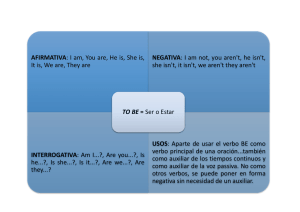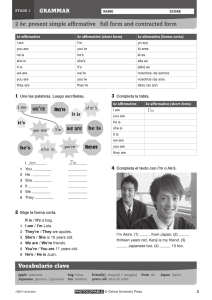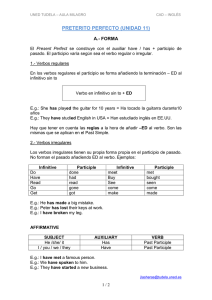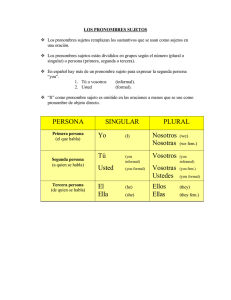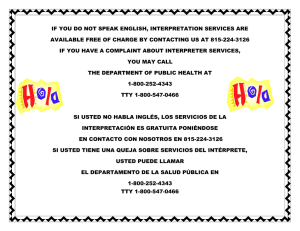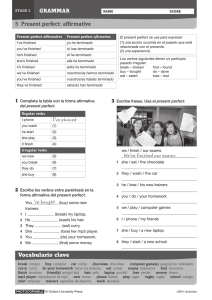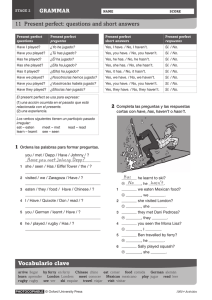Unit 9
Anuncio
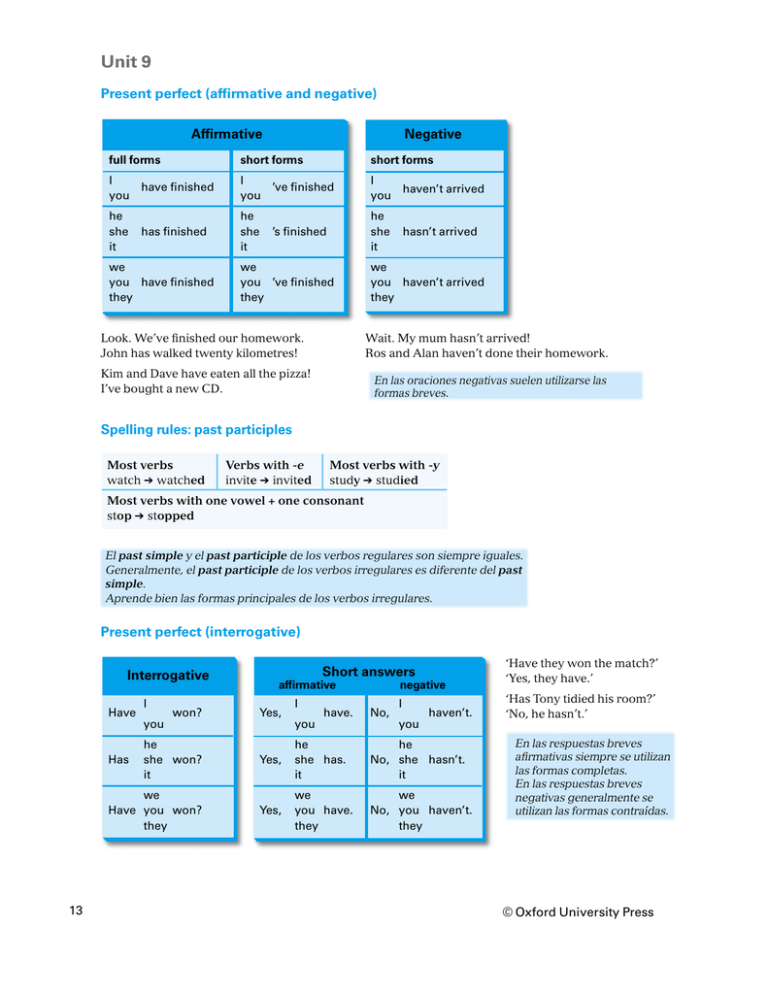
Unit 9 Present perfect (affirmative and negative) Affirmative Negative full forms short forms short forms I have finished you I ’ve finished you I haven’t arrived you he she it he she it he she it has finished we you have finished they ’s finished we you ’ve finished they Look. We’ve finished our homework. John has walked twenty kilometres! hasn’t arrived we you haven’t arrived they Wait. My mum hasn’t arrived! Ros and Alan haven’t done their homework. Kim and Dave have eaten all the pizza! I’ve bought a new CD. En las oraciones negativas suelen utilizarse las formas breves. Spelling rules: past participles Most verbs watch ➔ watched Verbs with -e invite ➔ invited Most verbs with -y study ➔ studied Most verbs with one vowel + one consonant stop ➔ stopped El past simple y el past participle de los verbos regulares son siempre iguales. Generalmente, el past participle de los verbos irregulares es diferente del past simple. Aprende bien las formas principales de los verbos irregulares. Present perfect (interrogative) Interrogative Have won? affirmative Yes, I have. negative No, I haven’t. you you he she won? it Yes, he she has. it he No, she hasn’t. it we Have you won? they Yes, we you have. they we No, you haven’t. they Has 13 I Short answers you ‘Have they won the match?’ ‘Yes, they have.’ ‘Has Tony tidied his room?’ ‘No, he hasn’t.’ En las respuestas breves afirmativas siempre se utilizan las formas completas. En las respuestas breves negativas generalmente se utilizan las formas contraídas. © Oxford University Press
